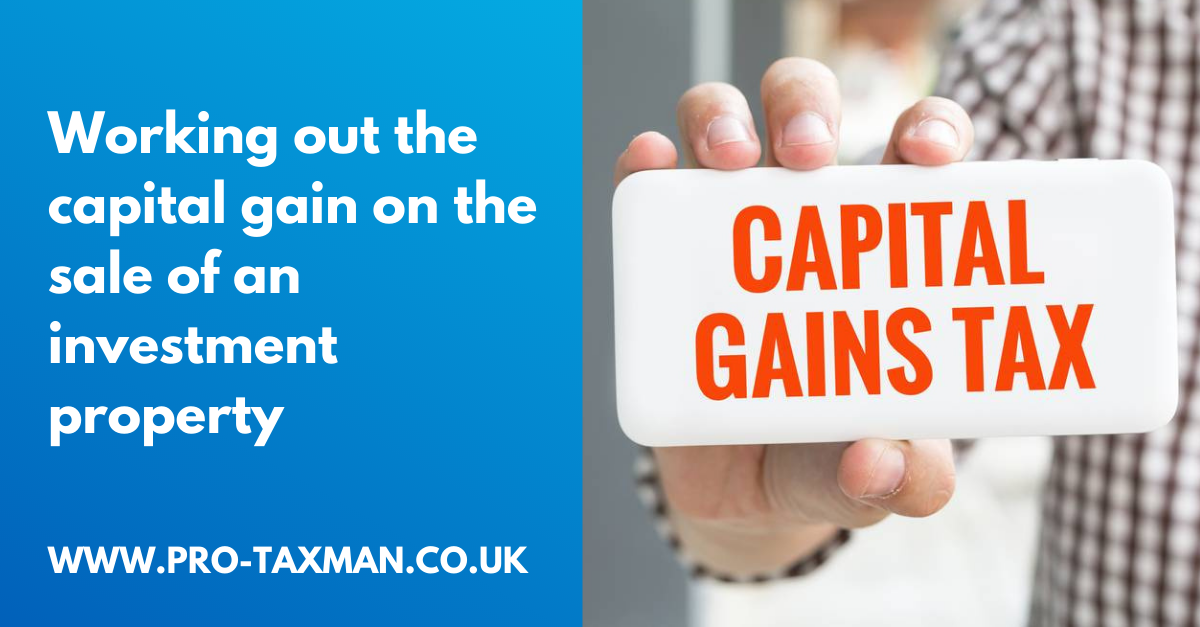If you sell a property that has not been your main residence throughout the period that you have owned it, you may need to pay capital gains tax if a gain arises on the disposal of the property. This may be the case if you have an investment property, such as a buy-to-let or holiday let, or a second home.
It is important that you understand how to calculate the gain. Overlooking deductible expenses may prove costly.
Need to act promptly
Working out whether there is a gain on the disposal is something that needs to be done promptly – residential property gains must be reported to HMRC within 30 days of completion and the tax paid, if any, within the same time frame. Interest and penalties may be charged for failure to report the gain and pay the tax within this time frame.
Consideration
The starting point of the calculation is the consideration for the disposal. This will normally be the amount that the purchaser paid for it. However in certain situations, the market value is used instead of the amount paid, for example where the property is sold or gifted to a ‘connected person’ such as a child or a sibling.
Costs of disposal
When working out the gain, you can deduct the costs of disposal from the sale proceeds (or market value where relevant). This will give you the net disposal proceeds. Relevant costs here are estate agents fees, legal fees and suchlike.
However, if you have a mortgage on the property, any amount paid to clear the mortgage cannot be deducted.
Amount paid
In working out the gain, you will also need to deduct the purchase cost of the property, and the cost of any improvements that you have undertaken since you acquired the property, for example, any costs incurred in extending the property. However, normal decorating and maintenance costs should be ignored in calculating the gain.
Cost of acquisition
You can also deduct any incidental costs of acquisition, such as legal fees, survey fees and stamp duty land tax.
Reliefs
Once you have worked out the gain, you will need to take account of any available reliefs. For example, if the property has been your main residence at some point, you will be entitled to main residence relief for the period for which you lived in it as your main residence, and also the last nine months of ownership.
Jointly-owned property
If a property is jointly-owned, each owner is only liable for their share of the gain, and it is this rather than the total gain that they must report to HMRC. The gain is reportable and payable per chargeable individual rather than per property.
Working out the tax
A payment on account of the tax due on a residential property gain must be paid within 30 days. This is the best estimate of the tax due at the date of sale. Losses realised previously in the tax year or brought forward can be taken into account, as can the annual exempt amount, if this has not been used already.
As the end of the year there may be some adjustment after the tax return is filed, and it is possible that a repayment may arise if losses are realised on later disposals in the tax year.
Need professional accounting service or accounting advice? Contact us to book a 15-min Free Consultation with us today.
To find out more please follow us on Facebook , Twitter or LinkedIn. Feel free to contact us on 0333 006 4847 or request a call back by texting to 075 6464 7474.

